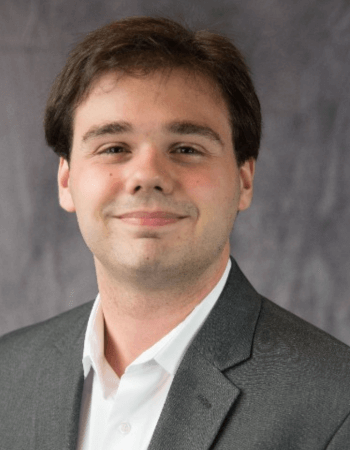The tax industry is evolving and with it, the demand for highly skilled tax professionals is on the rise.
Many firms are looking to foster growth and efficiency by leveraging the huge volume of data available and expanding their client offerings.
We spoke to a professional in the public accounting sector to find out exactly what is going on behind the scenes—and how to prepare.
Tax professionals need to be highly skilled across multiple functions
The role of the tax professional is becoming more advanced. Alongside extensive technical knowledge, careers in tax require data-savvy skills and insight into business strategy.
The Master of Business Taxation with Data Analytics (MBT) program at the Villanova School of Business aims to give students the broadened perspective and high-level skill set needed to succeed.
Brian Armstrong is a graduate from the program who now works in the public accounting industry.
“Our clients are relying on us more and incorporating us into their overall business strategy. Every tax practitioner now must be more of a generalist and must understand the holistic business of their client to provide the best possible service,” he says.
However, the MBT program helped Brian understand the inner workings of the tax firm so was prepared for any challenges when he started his full-time role.
“Villanova aligns classes with every potential service offered at tax firms,” says Brian.
Courses in the MBT program include Partnership Tax, Taxes and Business Strategy, Corporate Tax, International Tax and Tax Issues in Mergers & Acquisitions Transactions.
While studying the MBT program at Villanova, Brian completed an internship in which he was able to apply his learnings.
“I could see the progress I made [in my internship] as a result of the added knowledge the program gave me and the support I received in developing my technical tax skills and soft skills,” he says.
The structure of the program, which covers a broad range of high-level topics in just two semesters, is also very conducive to the fast-paced accounting environment, he adds.
There’s a huge volume of data available in the tax profession
Data has always been intrinsic to a career in tax, but now there is more data than ever before for tax professionals to handle and leverage.
“As our volume of clients is increasing, the volume of data is increasing. The amount of information to process can be overwhelming so we need to sort through the noise and make sure we’re eliminating some of the extraneous information that can lead us down a difficult and often time-consuming path,” says Brian.
The Master of Business Taxation with Data Analytics program at the Villanova School of Business intersects core disciplines within the public accounting profession with data analytics.
Students explore the impact of data and technology on taxation in courses such as Emerging Tax Technologies, Data: Models, Analysis, and Visualization and Digital Accounting.
“Not only are you learning the basics in terms of identifying key transactions and risk areas, but you’re also exploring questions such as how can we automate it? How can we make it more efficient? How can we navigate the ever-evolving landscape of big data that is coming into our profession?” says Brian.
In a three-day immersion course at the start of the MBT program, students become familiar with data collection platforms such as Alteryx and PowerBI.
These tools are integrated into all courses across the MBT program so students understand how they can be used in different situations.
Brian was able to impress management during his internship by developing Alteryx workflows to automate data transformation, which helped cut processing time in half for various tasks.
“Using different data analytics tools such as Alteryx and using automation processes to make more simplified processes, we’re able to create more efficient and effective processes,” he says.
Legislation and regulation are increasing across the tax sphere
Another big factor driving the evolution of the tax world is increasing legislation, which is caused by the shifting economy and political climate.
“We’re seeing an increasing trend in tax legislation, so we have to be extremely vigilant to make sure we’re applying the law correctly, understanding the changes as they occur, and taking appropriate action that’s not going to expose our clients to risk,” says Brian.
With such important changes taking place across the profession, leaders of the MBT program at Villanova work closely with an advisory board of tax partners and professionals to ensure they are one step ahead.
In the classroom, students also learn from tax partners and professionals who have worked at Big Four and international accounting firms.
It’s no doubt that the tax industry will continue to evolve more and more.
Being equipped with first-hand insights from industry professionals, data analytics skills, and cross-functional tax knowledge will offer a solid launchpad for success, believes Brian.
Brian Armstrong graduated from the Master in Business Taxation with Data Analytics program at Villanova School of Business and landed a role at KPMG. He is now a senior associate specializing in US corporate tax planning and credits at the firm.




